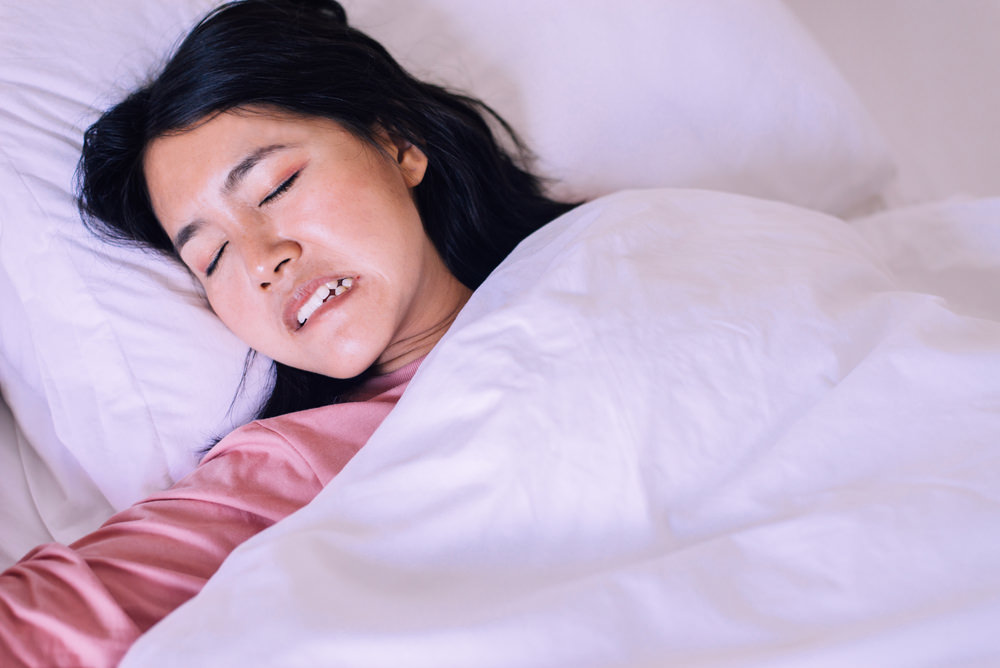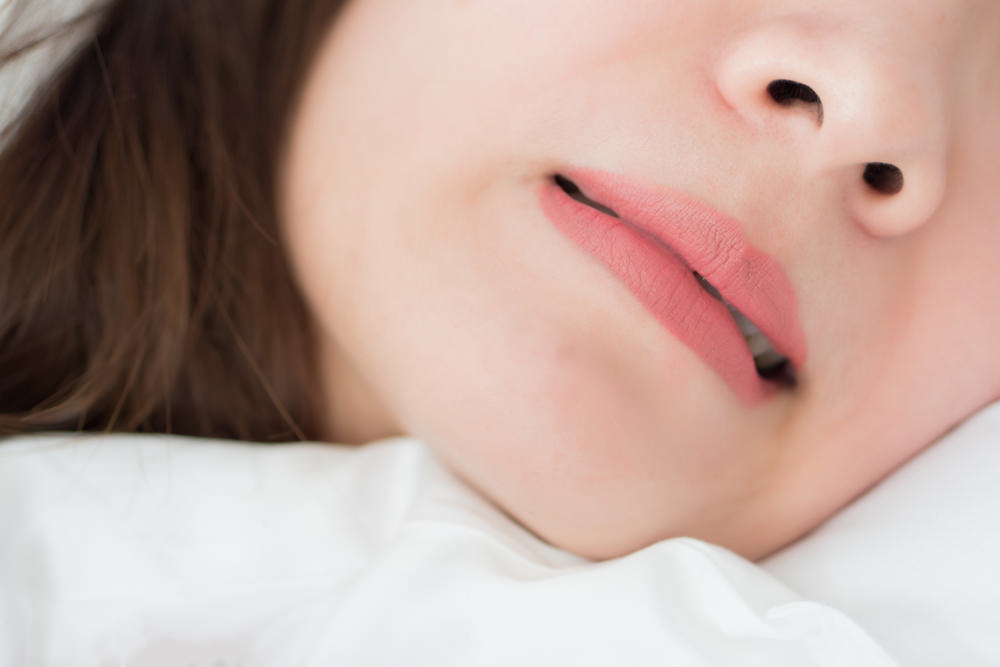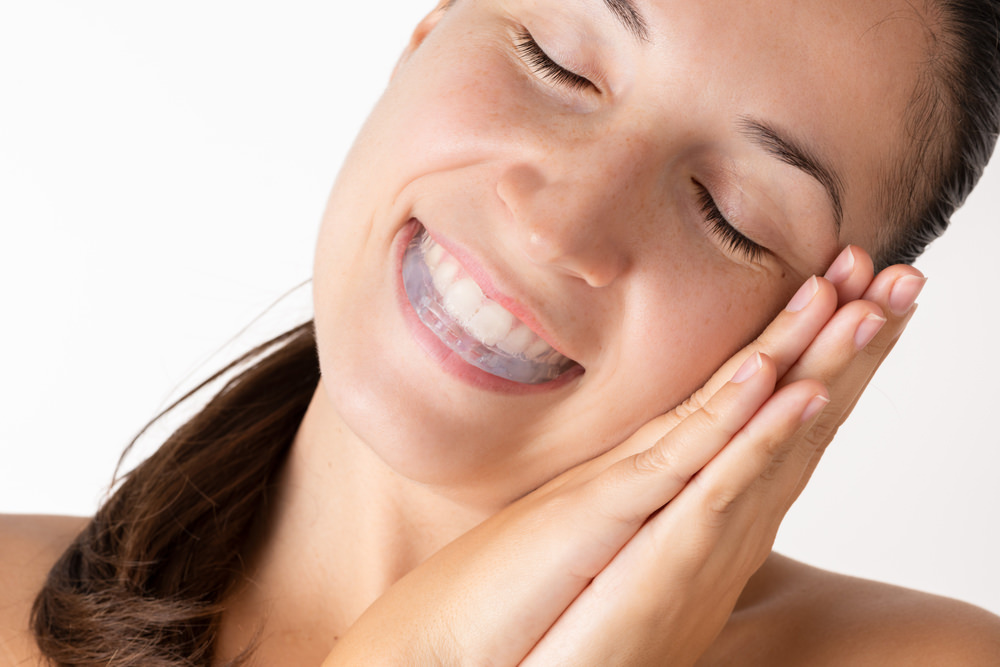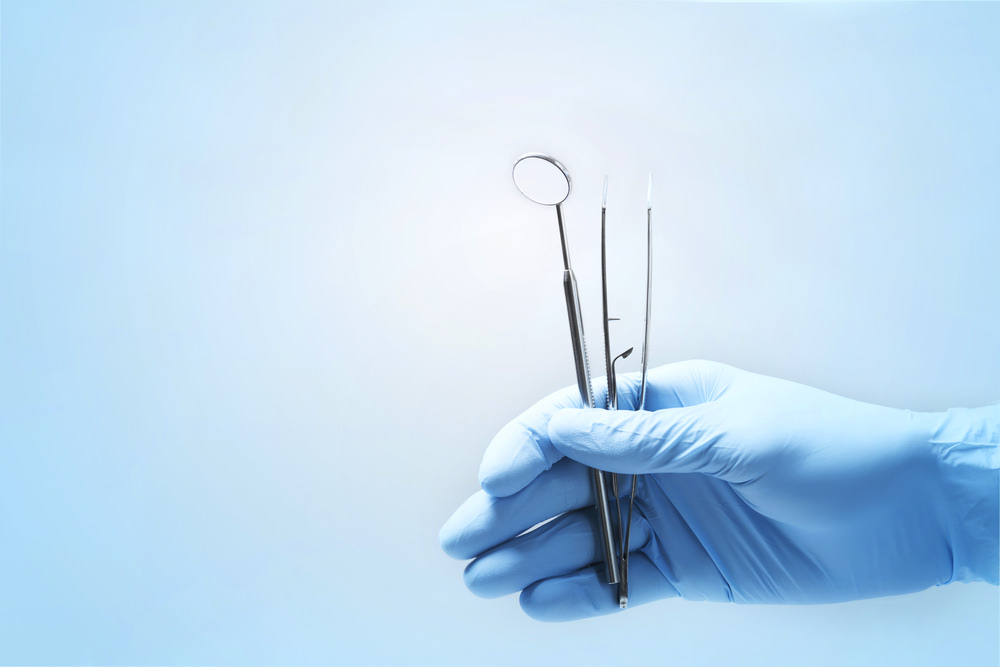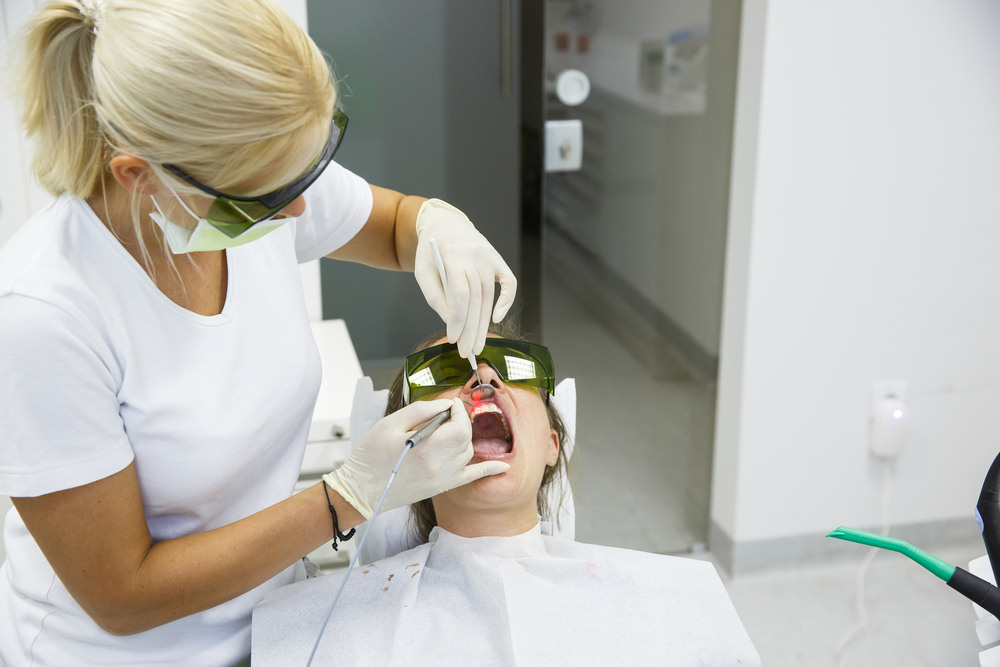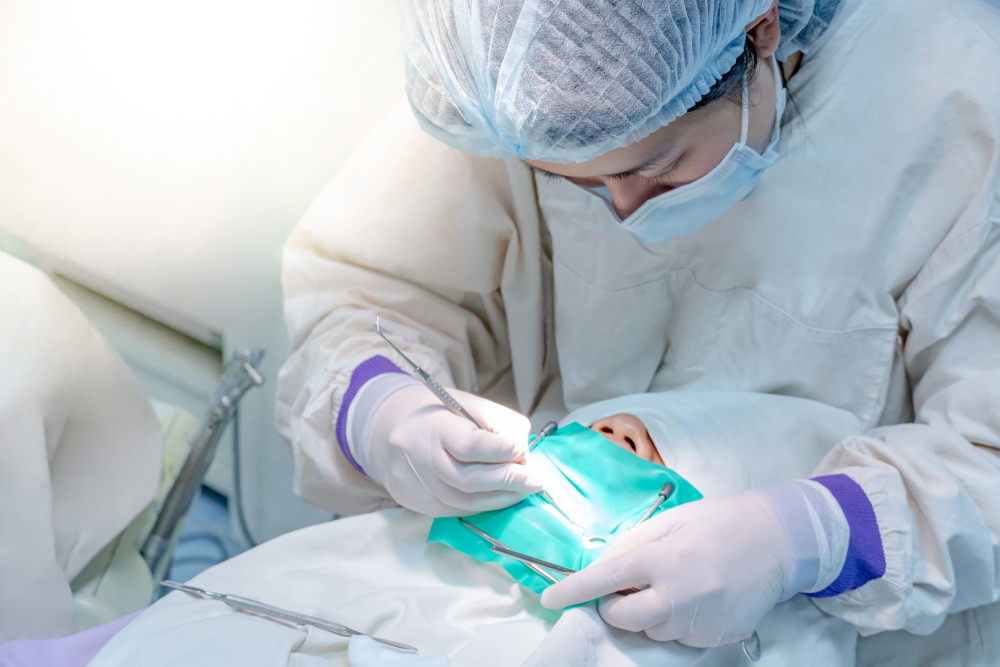Mouth Tape – The Ultimate Review!
Something that is becoming a very popular question is – what is mouth tape?
Mouth tape is essentially exactly what it sounds like.
You simply use dental-grade tape to tape your mouth shut, before you go to bed.
This home remedy forces you to breathe through your nose, instead of your mouth, even while you’re sleeping.
While many swear that mouth taping is the ultimate solution to mouth breathing, the research behind this technique is lacking.
So, if you are wondering whether mouth taping is worthwhile or just something quirky that will pass, today we will discuss everything you need to know about it.
Although there are no studies on “mouth taping”, there are many studies on nasal breathing in comparison to mouth breathing.
These studies take into consideration the development and shape of the face as the child matures and grows.
Mouth taping is only one way of changing this dynamic.
That is changing from mouth breathing to nasal breathing.
Let’s start straight away, so you can discover whether you should start taping.
When Do You Need to Use Mouth Tape?
The thing about being a night-time mouth breather is that it happens to most people without them realising it.
Yes, that’s right.
No matter how much you practice nasal breathing, mouth breathing can silently and slowly creep up on you, becoming a harm to your dental and overall health.
Regardless of how much you are practicing nasal breathing throughout the day, you could still be unknowingly mouth breathing at night.
So, what are the symptoms to look out for?
Essentially, if you notice yourself developing any of the following warning signs, they could be signalling that you are an ideal candidate for mouth tape.
They include that you:
- Wake up with bad breath, a dry mouth, or a scratchy throat.
- Get up in the middle of the night to urinate.
- Toss and turn during the night.
- Snoring.
- Have gingivitis and/or bleeding gums.
- Grind your teeth.
- Have cavities.
- Drool on your pillow throughout the night.
The biggest sign is if you have a type of sleep-disordered breathing, like sleep apnea.
If this is the case, it is almost guaranteed that you are breathing through your mouth instead of your nose while asleep.
It may also be something your dentist recommends to you if they notice that you’re mouth breathing throughout your dental appointment.
Why is breathing through your mouth, rather than your nose, while sleeping, such a major concern?
Let’s move on to that in the next sub-heading.
Does Mouth Tape Work?
Why target mouth breathing?
Well, mouth breathing is associated with several health conditions, including snoring, allergies, and oral health conditions.
So, breathing through your mouth while you are sleeping is thought to:
- Be the main cause of cavities.
- Reduce your quality of sleep.
- Upset the balance of your oral microbiome, and
- Make you more susceptible to tooth decay.
- Dry out your saliva which is the main protection for your teeth and gums
- Nasal breathing filters clean and humidify your breath
- Nasal breathing secretes nitric oxide in the paranasal sinuses and reaches the lungs through inspiration
- Nitric oxide can help reduce respiratory tract infections and inactivates viruses
- Nitric oxide is the unique signalling molecule in the cardiovascular system and the main organs of the body.
What Does Nitric Oxide Do?
In 1998 The Nobel Peace Prize was awarded jointly to Robert F Furchgott, Louis J Ignarro and Ferid Murad.
The title of the Nobel Prize was “Nitric Oxide as Unique signalling molecules in the Cardiovascular System”.
Their contributions to the understanding of this gas have led to studies that have now discovered that there is a link between low Nitric Oxide levels and many diseases. (Article summarizes by (Dr Heidi Dickerson, DDS, LVIM, FIAPA)
Nitric oxide plays a role in every organ of your body!
Here are a few things it does:
- As a vasodilator, it decreases blood pressure and improves blood flow to the organs
- Anti-inflammatory action in the arteries
- Prevents blood clotting and obstructions in the arteries
- Immune defence; destruction of viruses and parasitic organisms
- Plays a role in respiration
- Enables erectile function
- Enhances memory and learning
- Protects the skin from harmful ionizing radiation
- Promotes a healthy digestive tract by regulating the secretion of digestive hormones and enzymes
- Hormonal effects; influences secretion of hormones from several glands
- Regulates bladder function
- Acts as a signalling molecule to maintain normal bodily functions
- Regulation of binding/release of Oxygen to hemoglobin
- With heavy mouth breathing also comes a vasoconstrictive effect of up to 50% restriction OF BLOOD FLOW TO OUR BRAIN.
- Each hemoglobin molecule carries four oxygen molecules. And since we know that oxygen is released in the presence of Carbon Dioxide so if you can imagine the harder and faster you breathe through the mouth the less carbon dioxide is present so therefore less oxygen is released from the haemoglobin. You may have blood with a high Oxygen level but the oxygen released into the organs is less as it does not get released from the hemoglobin. This is the major underlying problem of mouth breathers.
There is a link between low Nitric Oxide Levels and many diseases such as:
- High blood pressure
- Heart disease
- Heart attack
- Stroke
- Digestive tract issues
- Alzheimer’s disease
- Dementia
- Erectile dysfunction
- Bladder issues
So, the benefits that mouth tape has for your dental health are huge.
Breathing through your nose is one of the most beneficial things you can do for the overall health of your body and your longevity.
As mentioned, if you use mouth tape, you are forced to breathe through your nose, rather than your mouth.
Carbon Dioxide is key for how oxygen gets released from red blood cells into our tissues and our organs.
When you breathe through the mouth at night you lose Carbon Dioxide, which results in Oxygen sticking to the hemoglobin and not getting released.
Basically the more you breathe through the mouth the less oxygen is being released in the tissues.
When you breathe through the nose, nasal resistance increases by approximately 200% and helps in the release of Oxygen.
Mouth breathing does not let our bodies take advantage of the sinuses production of Nitric Oxide.
This is an easy way for you to get all the rewards of nasal breathing, including improved quality of sleep, and better overall medical and dental health.
It is thought that the majority of people who begin mouth taping notice their sleep improve within the first few nights, as mouth breathing is often connected to interrupted sleep.
That is, it’s just enough to awaken you from a deep sleep, but not so much that you remember waking.
But once you use mouth tape, the interruptions to your sleep seem to reduce by huge amounts. Meaning, you get a deep sleep and wake up feeling fresh.
Is This Backed Up By Research?
Doctor David MacIntosh (Ear Nose and Throat) (PhD in sinus health and nasal breathing) has done extensive research into sleep-disordered breathing.
His book “Snored to Death” is a revealing read.
There are hundreds of blogs, articles, or videos on why you should do it, and how to do it, some even written by other dentists, such as this one.
But there is a study that shows that it works to reverse mild cases of sleep apnea.
30 people with moderate sleep apnea (an AHI score between 5 – 30) were tested, and their AHI score dropped by 73%.
The space behind their soft palate and tongue also broadened considerably (from 7.45 to 8.6 for the soft palate, and 6.5 to 10.2 for the tongue).
Moving on.
It is actually thought that the symptoms of mouth breathing in children/teens is almost identical to the signs of ADHD.
Interesting studies suggest that more than half of the children that are diagnosed with, and treated for, ADHD, may in fact be simply sleeping with their mouths open, and breathing that way half of their waking day.
So, if your child’s dentist believes that sleep-disordered breathing may be what’s causing behavioural or cognitive problems, mouth taping could be an aid to utilise.
Refer to the sub-heading “What Are the Pros and Cons” for more reasons to try mouth taping.
Can You Still Breathe with Your Mouth Tape On?
Yes, you can still breathe with your mouth tape on, just in a different manner.
It makes you breathe through your nose, instead of your mouth.
If you are a mouth breather, you may be a little concerned about the idea of this.
We realize it’s scary telling you to tape your mouth shut at night.
It’s also not likely that, if you are used to breathing through your mouth, your first-night mouth taping will be a success.
But keep reading on below for some exercises you can perform to make breathing through your nose seem like it was something you were doing all along.
Mouth Tape – When Should You Use It?
Before starting any of this, you should talk to your medical professional to see if mouth taping is safe for you.
Ensure that the tape is not long ways but place it vertically just as a reminder to your sleeping mouth to stay shut.
Use Micropore tape so that it does not damage the delicate skin around your mouth.
Once you have confirmed this, you can think about mouth taping, which works exactly as its’ name suggests.
You tape your mouth shut before you go to sleep.
Start taping your mouth while you are awake and get used to breathing through your nose so that taping at night is not traumatic or in any way inconvenient.
But, to do this successfully can take time, and it is important to make sure that you can breathe through your nose before you start taping your mouth.
If you suffer from allergies and have re-current nasal inflammation it may be difficult for you to breathe through the nose.
“Nose cones” can be worn.
You can purchase nose cones and in my dental surgery, I give them to my patients who have trouble with nasal breathing.
eBay search nose cones.
If you cannot find nose cones then use a steroidal nasal spray or even saline into the nose at night to unblock the nasal passage.
So, the best thing you can do is keep trying, and pay attention to the way you are breathing throughout the day.
Practice breathing through your nose during the day while you’re awake and more aware.
You can also try to incorporate the breathing exercises that are in this article into your day.
Or simply take a deep breath through your nose, so that your stomach rises full of air, and then exhale out of your nose while drawing your stomach back in towards your spine.
And after you brush your teeth in the morning, try wearing mouth tape while you finish getting ready, and are driving to work.
The more you practice mouth taping, and nasal breathing, the better chance you have of becoming familiar with these techniques, and being able to use them successfully while sleeping.
You’ll notice how easy (or perhaps the opposite) it is to breathe through your nose.
It may take time, but repetitive training of just a few minutes a day can effectively teach your body to do it habitually.
The one thing to remember is that if mouth taping does stop you from breathing completely, something is not right.
Many Oximeters, pulse meters and watches, can measure your oxygen saturation and heartbeat during the day and night.
You should be able to breathe solely through your nose.
If not, you may benefit from further investigation with your medical practitioner. Visiting Wim Hoff on Youtube will give you breathing exercises and ways to improve your nasal breathing techniques.
Just remember that learning anything new takes time, and mouth taping is no different.
Many people find that it takes a few weeks to get used to the process, so don’t give up if you find that you wake up with your mouth open for the first few days.
If you keep finding that you continue taking off the tape before you wake up, this is actually great information to give back to your dentist.
Having a monitoring device also on your finger as you sleep both prior to mouth taping and also after will give your dentist invaluable information on your breathing patterns.
Work with them to find out what is stopping you from breathing through your nose.
Some of the most common perpetrators are dusty or stuffy bedrooms, allergies, or a deviated septum. These can be easily fixed.
What Are the Controversies Around It?
While we have made the benefits of mouth taping well-known, it does also come with possible side effects.
But as we mentioned earlier, the most important thing to make sure, if experimenting with mouth taping, is that you can breathe comfortably through your nose first.
This is why we suggest that you try to tape your mouth during the day, and see how long you can wear the tape.
Continue to practice during the day and ensure that there is enough mouth opening at first to ensure that you do not feel anxiety about keeping your mouth taped. Medical or dental advice is also highly recommended.
Now, due to gravity, blood pooling, neurological and hormonal factors, the nose tends to get a little more congested at night.
This is where the controversy kicks in.
But, as far as I am aware, there have been no reports of severe complications associated with mouth taping.
This means anyone should be safe to mouth tape.
But there are people that it has not been recommended for.
Those who do not have clear nostrils are not candidates for mouth taping.
If you have severe nasal congestion (for example, you suffer from allergies or illnesses), a stuffy nose in general, or a deviated septum, it is unlikely you will be able to breathe through your nose successfully.
A thorough examination is recommended by an Ear Nose and Throat physician.
See, regular mouth breathers theoretically routinely breathe through their nose if unable to breathe through their mouth.
But the exact opposite happens if you have nasal congestion – you breathe through your mouth as you cannot breathe through your nose.
Then again, a study has found that 93.4% of 663 people tested were able to breathe easily through their nose for 3 minutes, and 2/3 of people with mild to serious nasal congestion could also breathe with their mouth taped for 3 minutes.
But for your safety, if you have a stuffy nose, it must be corrected before you tape your lips shut.
This is a different, complicated and long subject altogether, but options include nasal saline, internal nasal dilator devices, or allergy medications.
Or, you can download this great report which explains how to ‘unstuff’ your nose so you can mouth tape.
It is also debatable whether it works for people with sleep apnea, as the mouth tape may not treat the stops and starts in breathing that accompany this condition.
So, some dentists still recommend traditional sleep apnea treatments, such as oxygen therapy from CPAP machines.
Others who should also not use this method are very young children or babies.
Older children are fine – as long as if, encouraging them to mouth tape, you ensure that they can easily open their mouth if they need.
All children must have the ability to open their mouths if need be.
Vertical tape should always be used so the mouth can still open in cases of difficulty breathing.
Mouth taping is thought to be safe for both children and pregnant women.
But it is important to point out that most of the benefits that have been spoken about from mouth taping are based only on anecdotal evidence.
For example, there have only been a few studies done on people with asthma.
The first looked at 51 people, and the partakers found they were able to sleep in comfort.
But researchers found that the mouth tape didn’t affect their asthma symptoms.
However, I could also argue the opposite – that there’s a greater risk to your dental health if you continue with nasal breathing.
So, look into the “Pros and Cons” below to determine if this method is for you.
What Are the Best Mouth Tapes Made From?
Before I talk about what mouth tape is, I want to explain what mouth tape is NOT.
Mouth tape isn’t duct tape or any other haphazard tape that you just purchase randomly from any store to smack on your mouth.
The best mouth tape is the one that is specifically made for mouth taping, or a surgical micropore (a tape made from microporous material, which is a material containing pores).
These are only slightly invasive, pain-free, and totally safe, whereas sleeping with duct tape on your mouth is not.
Mouth tape itself will leave less residue, but surgical micropore tape is less expensive.
Anyway, look for a tape that:
- Has been designed to be used on your skin.
- Has adhesive qualities.
- Is medical-grade.
- Is latex-free.
- Is hypoallergenic.
What Are the Pros & Cons With Mouth Tape?
Breathing through your nose has plenty of pros.
These include that it helps to:
- Lubricate your nostrils, stopping your sinuses from drying out.
- Humidify the air you breathe in. This is thought to reduce some of the aggravations of asthma symptoms, such as nighttime coughing.
- Balance out your mouths’ pH levels, putting a stop to dental conditions such as dental decay, dry mouth, teeth grinding, cavities, bleeding gums, gum recession and gingivitis.
- Reduce snoring – only if you snore through your mouth. Not sure if you snore through your mouth or nose? Simply cover your mouth with your hand. If unable to make a snoring sound, then you snore through your mouth.
- Lessen drooling while sleeping.
- Limit sleep disruptions, such as night-time trips to the bathroom.
- Increase the amount of nitric oxide you ingest by 25%. This is critical for brain and immune function, cardiovascular health, and overall blood oxygen levels. It also relieves pain and assists with reducing symptoms of anxiety and depression.
- Lower high blood pressure.
- Aid an increased heart rate.
- Soothe a sore throat.
- Prevent sleep disturbances, so you wake up less regularly at nighttime, thus not missing out on your much-needed deep sleep cycles.
- Lessen chronic inflammation in your body, which is associated with long-term consequences, including cancers, weight gain, obesity, and type 2 diabetes.
- Effectively diagnose more severe issues, after realising you cannot keep your mouth taped shut.
- Prevent children from getting abnormal facial growth and development, misaligned teeth, and poor sleep behaviours, which can lead to exhaustion and reduced mental processing skills.
While these pros are great, like everything, it comes with their potential downfalls.
These include:
- Skin irritation on your lips and around your mouth.
- The residue that is sticky remains on your lips and mouth the following day.
- Insomnia, or disruptions to your sleep.
The best thing you can do is talk to your Doctor about these risks of mouth taping and how you can best counteract them.
Alternative Solutions to Mouth Tape
It’s understandable if the thought of taping your mouth shut while sleeping is met with some initial anxiety.
But it is believed that, if you give it some time, you will become comfortable with the idea.
If not, there are alternative solutions to mouth tape to prevent mouth breathing while sleeping, including those listed below.
Anti-snoring chin strap
If the thought of taping your mouth shut isn’t overly appealing, an anti-snoring chin strap can help hold your chin closed while you sleep, but your mouth remains uncovered.
Care must be taken as a chin strap may affect the temporal mandibular joints.
Mouthguards
Wearing a mouthguard while you sleep can help with some of the issues associated with mouth breathing.
It is used to prevent snoring and teeth grinding.
OTC allergy medications
If allergies are causing your mouth breathing problems, you can ask your doctor for their advice on the best OTC (over-the-counter) allergy medication for you.
When you take them on a regular basis, antihistamines (for example, cetirizine (Zyrtec)) can aid in preventing allergic reactions that are linked to seasonal allergies, pet hair, or dust mites.
Or Decongestants can aid in alleviating congested nasal passages from ailments such as hay fever.
So, essentially, if allergies are your underlying cause, consider a dual product.
Nasal Strips
Though nasal strips will not assist with breathing issues caused by sleep apnea, they may help lessen snoring.
Studies also show that nasal strips can reduce daytime drowsiness and dry mouth.
These are available for purchase from your local chemist, and you place them on your nose at night before going to bed.
Nose cones are available from selected chemists and also eBay.
Excellent for opening the nasal cavity and may not need to tape the mouth if the expansion of the nostrils is effective sufficiently.
Lifestyle changes
Making some changes to your lifestyle can help improve your night-time mouth breathing.
Such changes include:
- Quitting smoking.
- Avoiding consuming alcohol prior to bed, and
- Reducing the amount of caffeine you consume.
It’s a lot to ask for, we know.
You can contemplate asking your doctor to create a cessation plan to assist with quitting smoking.
Another option, if you are overweight, is, if possible, attempting to lose weight.
This may help reduce your likelihood of getting sleep apnea.
The Brands That Sell Mouth Tape in Australia
Though mouth taping itself is a fairly modern trend, mouth tape itself is broadly available.
You may see it marketed as sleep tape, sold online, or in your local chemist.
Or, as mentioned, you can also use surgical tape, which is also available for purchase at your local pharmacy.
Brands sold in Australia include:
- Nexcare Micropore Gentle Paper Tape.
- Nexcare First Aid Tape.
- WoodyKnows Mouth Tape.
- d3 X6.0 Waterproof Kinesiology Tape.
- Sleep Strips by Somnifix.
- RemSleep Advanced Mouth Strips.
- ItAll.
- i-health.
- SALORIE.
- Band-Aid First Aid Non-irritating Paper Tape.
- John Surgical Tape.
- Transpore Surgical Tape.
- APE Medical 3m Micropore.
- The Animal Pharmacy White Surgical Tape.
- Micropore Surgical Flesh Tape.
- Durapore Surgical Tape.
- Blenderm Surgical Tape.
Conclusion
If this post has intrigued you about starting mouth taping, remember that it’s important to speak to your doctor or dentist first, ensuring it’s safe for you.
They may even refer you to a sleep specialist for further treatment.
I’ll leave you with some additional mouth taping tips:
- Apply Vaseline or petroleum jelly to your lips and the surrounding area of the skin. This will help prevent skin irritation and the tape leaving residue.
- Place the tape horizontally on your lips, and ensure it covers your entire mouth area.
- For easier removal, take a bit more tape so it spreads slightly further than your mouth, and fold both ends into little handles.
But, mouth taping is effective, and safe for almost everyone.
It has no negative impacts if you are using the correct type of tape.
So, if you get the all-clear, then what do you have to lose?
Give it a try.
Try it during the day and see your tolerance level.
The worst that can happen is that it will not work.
But it’s a simple technique, a health remedy, and by using it you should reap benefits for your dental and overall health.
Do you have issues with sleeping with your mouth open at night?
By Dr. V
Created at October 29, 2021, Updated at January 25, 2025


